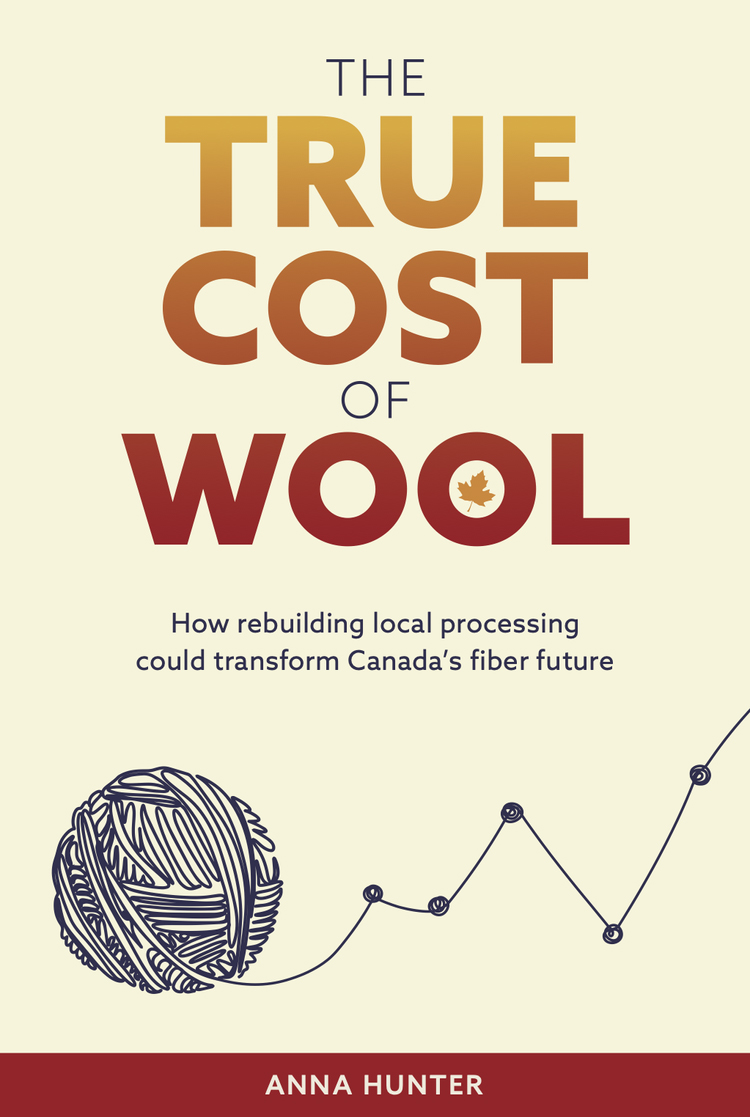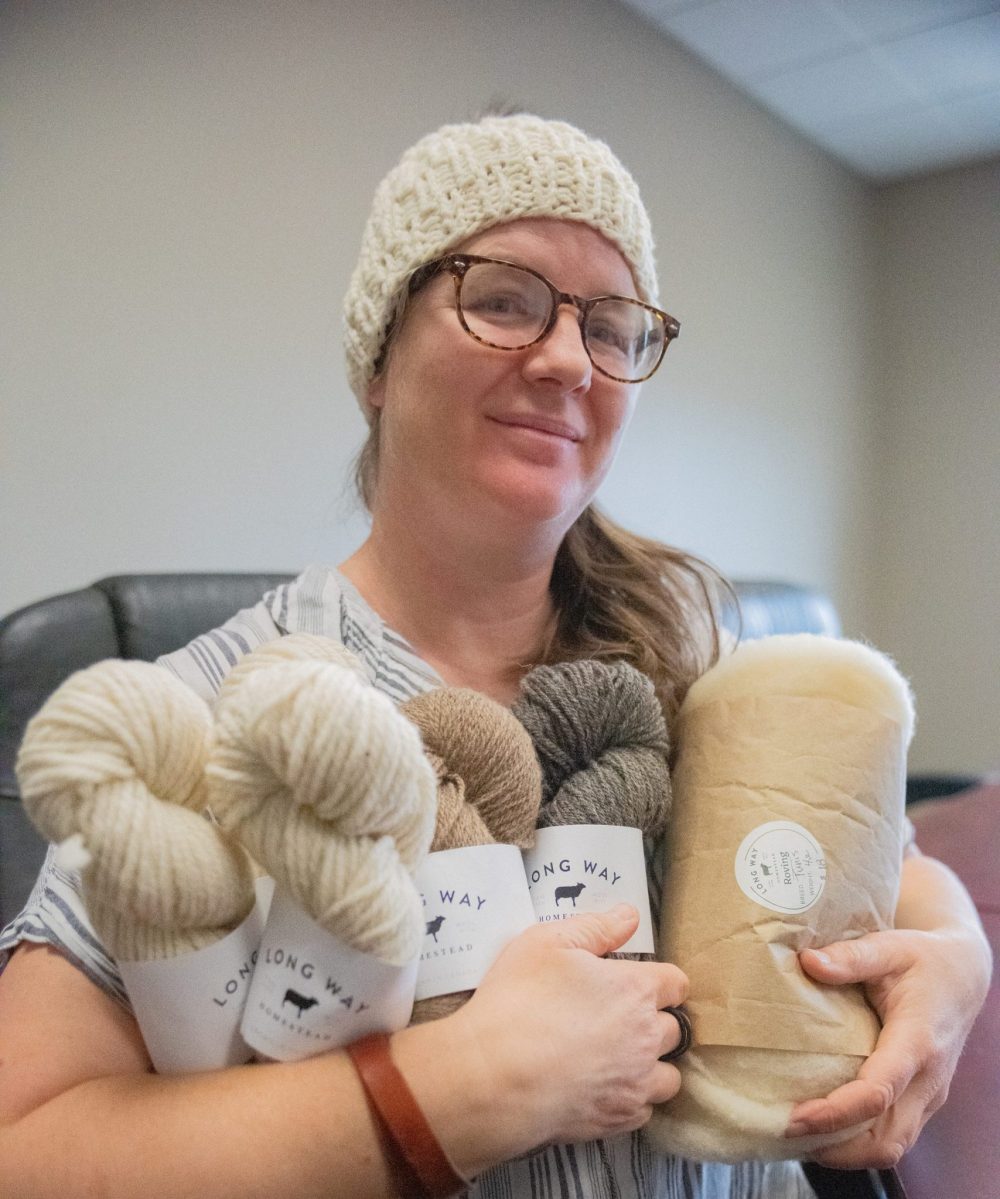True Cost of Wool examines economic, environmental impacts of wool industry
Advertisement
Hey there, time traveller!
This article was published 24/06/2025 (208 days ago), so information in it may no longer be current.
A Ste Genevieve shepherdess and author has just released her second book on wool with an eye on the industry in Canada.
Anna Hunter’s newly released book The True Cost of Wool: A Vision for Revitalizing the Canadian Industry examines the environmental, economic, and social impacts of the Canadian wool industry.
A first-generation sheep farmer, Hunter established her 140-acre farm 10 years ago after moving to Ste Genevieve from Vancouver where she owned a community based yarn shop named Baad Anna’s. After a year-and-a-half of faming, Hunter and her husband realized that there was no place locally to process their wool so in 2018 they opened a wool mill, which was at the time the only known wool mill in Manitoba.

“Through this experience I just realized how challenging it was for sheep farmers that wanted to focus on wool production and what was happening in our Canadian wool industry, that’s where the education and advocacy work came into play, which is why I ended up writing this book,” she said.
Canada’s sheep population comprises less than one percent of the global sheep population and accounts for only two percent of the farms in Canada.
According to The True Cost of Wool, in 2023 there were 854,400 sheep on 8,487 farms across the country. Ontario, Quebec, and Alberta raised most of the sheep in Canada and there are more than fifty recognized breeds being raised on those farms. The majority of the sheep industry in Canada is focused on meat (lamb) production.
Hunter claims that as a textile, wool requires less resources to process even through the growing and manufacturing phases than synthetic fibres which are made from fossil fuels.
“The great thing about wool is after it’s life cycle, it will return to the soil and breakdown within six to 12 months compared to the synthetics that we work with which take upwards of 200 years.”
She noted the greenhouse gas emissions from textile plants and from importing and exporting wool, yarn, and clothing internationally is much more expensive environmentally than producing wool products domestically.
“(I’m) really trying to challenge that notion that a globalized system is a better option. It might be cheaper in terms of how much we pay for a t-shirt or a sweater or a ball of yarn, but the cost is much bigger when we look at the environmental impact.”
According to True Cost of Wool, in 2022 Statistics Canada reported that 135,000 kilograms of wool was purchased from Canadian farms and 48,700 kg was used on-farm. The average price paid to producers for this wool was $0.38/kg. During that same year, 620,162 kg of wool was exported with a value of just over $1.2 million.
Economically, Hunter is calling for the re-evaluation of the value of wool and a return to domestic production, which will provide jobs, pay famers a higher rate for their wool, and would invest in communities by building regional manufacturing.

“Part of what I want to point out in this book is that when we buy cheap clothing or when we buy cheap yarn, it’s actually really expensive if we look at the bigger impact. Maybe we’re only paying a couple of dollars, but when we look at the environmental impact of synthetic yarns or synthetic clothing on our environment, or if we look at the cost of a low cost ball of yarn that was manufactured in China, utilizing or exploiting low wage labour, that’s actually hugely expensive we’re just not having to pay the price,” she said.
“But as we’re seeing with climate change and trade wars and those sorts of things, the actual true cost of our supply chains are catching up with us. I think people will have to, or they’ll be forced into, better options as the true costs are revealed.”
At the end of the interview, light-heartedly, Hunter shared that her favourite sheep are Shetlands.
“They’re a lovely breed they have 11 distinct colours within the breed. They have really fun personalities.”
The True Cost of Wool is available at Hunter’s website longwayhomestead.com/canadian-wool-farm-store, Amazon, and McNally Robinson Booksellers.
